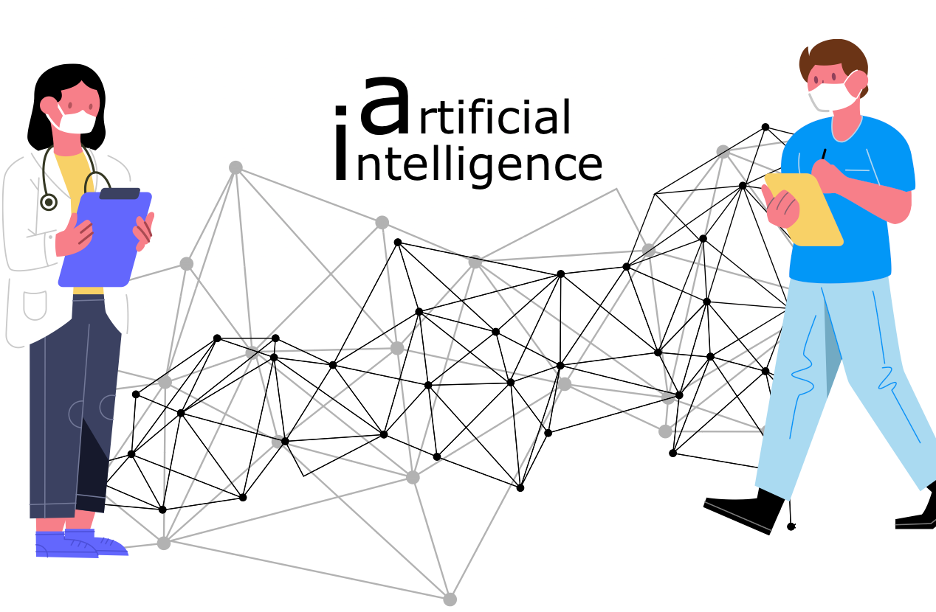
“Two physicians during the COVID-19 pandemic bridged by artificial intelligence” This cover has been designed using resources from Freepik.com and DrawKit.io
As COVID-19 cases rise globally, one must wonder what would help ease its burden within our society. A solution is artificial intelligence. Here’s why.
Artificial intelligence involves using machines to mimic human learning and thinking. It is a diverse area and many applications can be implemented for specific tasks. For instance, we can use AI to teach machines to recognize specific patterns.
Why would this be useful? During the current pandemic, doctors are overwhelmed by the sheer volume of cases to be analyzed. Symptoms are similar to other illnesses and cases keep piling high. Artificial intelligence can enable faster data analysis, ready to be interpreted by doctors, in effect acting as a ‘force multiplier’ in this battle against the virus.
Why aren't we doing this already? Currently, AI has been used to accurately predict the molecular structure of SARS-CoV-2 (the virus that causes COVID-19). This breakthrough shortens the time required to find a vaccine.
Though applications like this have been implemented, it remains a challenge to harness AI to analyze the number of COVID-19 cases that reach a hospital daily. In addition, not all countries have the necessary technology and expertise. Some are more technologically advanced, while others are still progressing.
Finding a way to introduce AI globally remains unresolved since each country’s response differs by their individual health systems and relative wealth. Though measures being taken by individual countries may be enough to get through the current crisis, we should look at ways to cooperate to combat future pandemics effectively. AI could be part of the solution.
Right now, healthcare workers are on the frontline battling COVID 19. There are simply too many patients assigned to a doctor or a nurse. This is where AI can take its place, helping healthcare workers speed up the process of treatment.
AI would not take the lead. Rather, it would augment the efforts of healthcare professionals to improve efficiency. Imagine: an emergency room flooded with coronavirus cases. Staff are overwhelmed, doing multiple tasks, some urgent, some routine such as checking vitals or taking temperature. A COVID-19-specialized AI takes this data, analyzes it, and immediately delivers the results to the doctor, who uses it to inform a recommended treatment.
On the public health front, imagine how AI-driven analysis could support much faster COVID testing, accurately reporting cases and providing the information needed to effectively implement solutions to flatten the curve.
Harnessing AI could also reduce burnout for healthcare workers. With less tedious tasks to complete, more time could be allocated in taking a breather, both physically and mentally. Doctors have the highest rate of mental illness than any other profession. About 40 doctors per 100,000 die from suicide, a rate double that of the general population. The rates are even worse during this pandemic. With physicians getting less sleep and losing more patients, their mental health succumbs to feelings of hopelessness. While reducing workloads isn’t a panacea, relieving some stress with AI is a start.
The reality is we could have been more prepared for COVID-19. We have a lot of resources to implement the next step towards technological advancement, but we don’t have the structure to make it feasible globally. Our healthcare professionals are suffering and we need better ways to support them. It is time to think about how to better implement AI to better support healthcare workers globally.
References:
By: Roxaneh Zaminpeyma

Roxaneh is a McGill graduate who holds a Bachelor’s degree in Anatomy and Cell Biology with a minor in Social Studies of Medicine. She is an aspiring clinician-scientist who is passionate about immunology, neurodegenerative research, patient advocacy, humane caregiving as well as medical history and technology. Her goal is to translate scientific content into words and images that can be understanding to all her readers.
